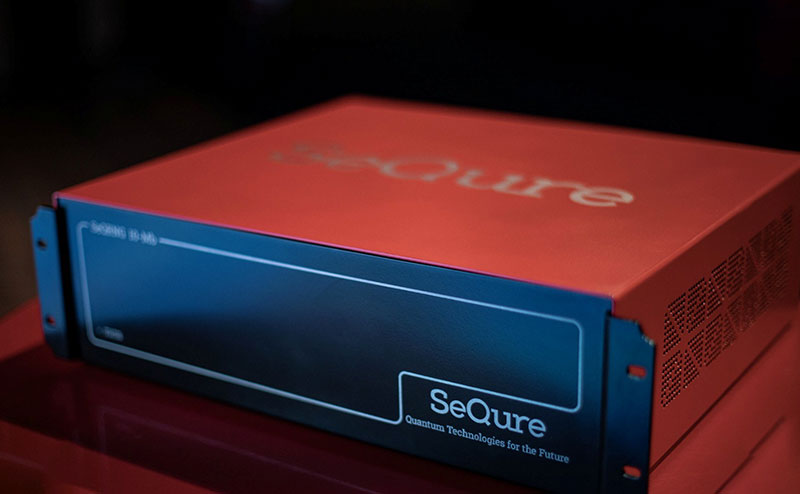
Sequre QuantumA commercial quantum-based device for generating random numbers, now used by Loteria de ConcepciónSequre Quantum
In early 2020, as COVID-19 began its global spread, a small team of researchers at the University of Concepción in southern Chile was hard at work developing a prototype for startup Sequre Quantum’s first commercial product. Due to pandemic restrictions, much of the work had to be done from home, relying heavily on email exchanges, video calls, and shipping components back and forth to build the prototype.
Sequre Quantum emerged from academic collaboration between Gustavo Moreira Lima, a Brazilian physicist who joined the Chilean university in 2011, and Marcin Pawlowski from the University of Gdansk in Poland. They created a random-number generator based on quantum physics, which the company claims makes the device virtually unhackable by ensuring its output algorithms are unpredictable. Potential applications for the device include gambling and generating encryption keys.
“We came up with an idea for generating random numbers that allowed us to create a competitively priced product,” explains Moreira Lima, who co-owns a patent on the technology with Pawlowski. “This will support a steady flow of revenue for the business.” Moreira Lima cofounded Sequre Quantum with Pawlowski and American physicist Stephen Walborn, who studied at the Federal University of Minas Gerais (UFMG) and taught at the Federal University of Rio de Janeiro (UFRJ) for 12 years before moving to the Chilean university in 2019.
“The device is like a 1-qubit [quantum bit] mini quantum computer,” says Walborn. “Its sole purpose is to generate random numbers.” It uses a laser to produce 10 million photons (light particles) per second, which may or may not be detected by two detectors. The sequence of detections and non-detections generates an unpredictable code that can be converted into a string of numbers.
So far, Sequre Quantum has received about $1.5 million in seed capital, over 90% from private sources, and sold seven devices at an undisclosed price. The first customer was Loteria de Concepción, a lottery company that has been using the device’s numbers for its draws since 2022. In cybersecurity, the firm has secured agreements with the Chilean armed forces and French multinational Thales. Walborn and astrophysicist Paulina Assmann, the startup’s CEO, visited Brazil in April to promote the product and seek partnerships at a quantum technology event organized in the lead up to the 5th National Conference on Science, Technology, and Innovation.
Republish